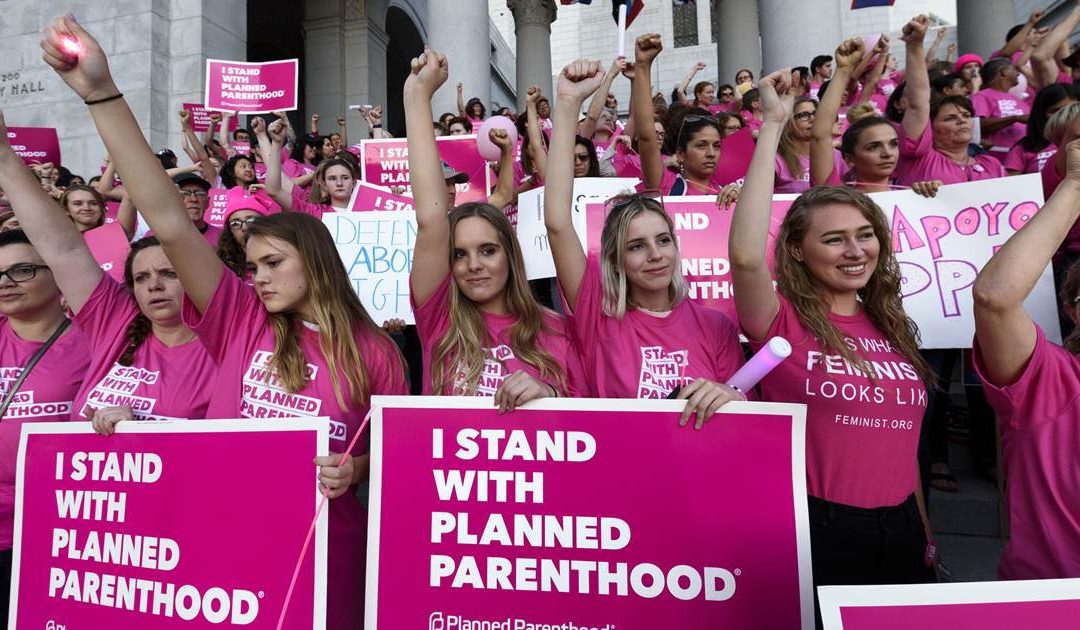The Supreme Court on Monday declined to review whether states can block Planned Parenthood and other abortion providers from their Medicaid programs, passing on a pair of cases that would have served as the first major abortion test for the court’s new conservative majority.
Chief Justice John Roberts and the newest justice, Brett Kavanaugh, joined the court’s four liberal jurists in turning away a pair of petitions from Kansas and Louisiana seeking the ban on abortion providers.
Justice Clarence Thomas, joined by Justices Samuel Alito and Neil Gorsuch, dissented.
It takes four justices to agree to accept a case, and this was considered a considerable blow to conservatives who thought they had a solid majority on the high court.
Thomas, suggesting most of his colleagues were fearful of taking up a challenge involving Planned Parenthood, asserted the cases weren’t about abortion rights but whether individuals have a right to challenge a state’s decision to cut a particular provider from its Medicaid program.
“Some tenuous connection to a politically fraught issue does not justify abdicating our judicial duty,” Thomas wrote. “If anything, neutrally applying the law is all the more important when political issues are in the background.”
States have tried to defund Planned Parenthood since a series of undercover videos in 2015 purported to show the women’s health organization profiting off the sale of tissue from abortions. A series of investigations found no evidence of wrongdoing by Planned Parenthood, which has forcefully denied the claims made by anti-abortion activists behind the videos.
“We are pleased that lower court rulings protecting patients remain in place,” Planned Parenthood Federation of America President Leana Wen said in a statement. “Every person has a fundamental right to health care, no matter who they are, where they live, or how much they earn.”
The anti-abortion group Susan B. Anthony List said it was “disappointed” the Supreme Court declined the case, as it called on the Trump administration to quickly finalize rules blocking federal funds to Planned Parenthood and other abortion providers through the Title X family planning program.
Tim Jost, an emeritus professor at Washington and Lee University School of Law, said it’s “noteworthy” that Kavanaugh passed on the cases.
“If Kavanaugh was going to deal a major blow to health care rights during his first session on the court, this would have been the case to do it,” Jost said.
Pro-choice advocates, however, are reluctant to read too much into Kavanaugh’s vote.
“I don’t think this is a harbinger of what’s to come,” says the ACLU’s Brigitte Amiri. “To the extent that people are saying that this shows where the Supreme Court, newly configured, is going to be on access to abortion questions, this case does not present that.”
That’s because the two cases the court declined to hear involve interpretations of Medicaid law, not the right to access an abortion or how states can regulate it.
For decades, no federal dollars have gone to fund abortions, but there have been many legal battles over whether providers like Planned Parenthood that offer a wide range of health services in addition to abortion are entitled to some amount of public health care funding.
Defunding Planned Parenthood has been a priority of the GOP base, and anti-abortion groups have been frustrated that a Republican-controlled Congress and administration have so far been unable to do so.
Kavanaugh’s elevation to the Supreme Court in October following the retirement of Justice Anthony Kennedy, a crucial swing vote on abortion cases, was thought to have delivered the five votes needed to back the states.
The Supreme Court’s action Monday allows split decisions to stand in different federal circuits.
Jost said the split rulings mean Medicaid enrollees in the 8th Circuit can’t challenge a decision by their state to terminate Planned Parenthood from Medicaid.
States in the circuit include Arkansas, Iowa, Minnesota, Missouri, Nebraska, North Dakota and South Dakota.
“But presumably in the rest of the country, Medicaid beneficiaries still have access to Planned Parenthood,” Jost said.
